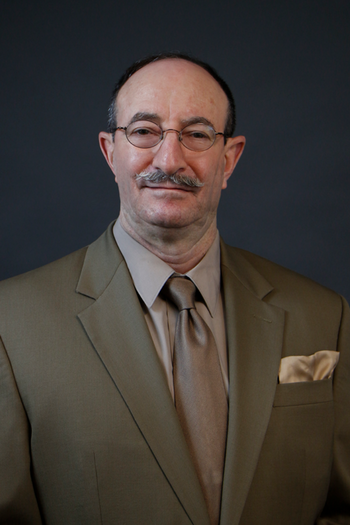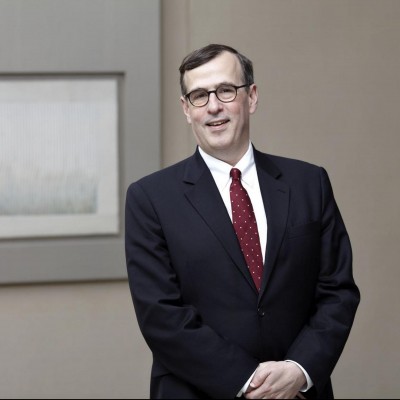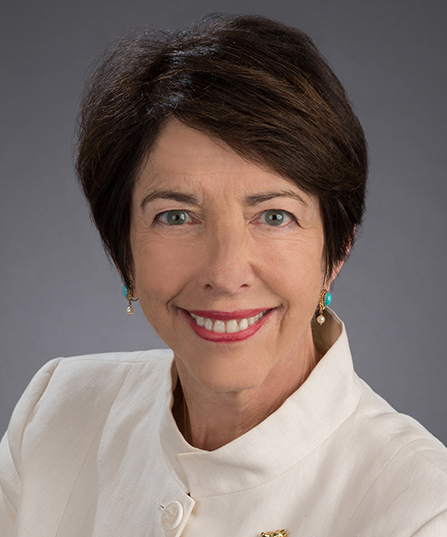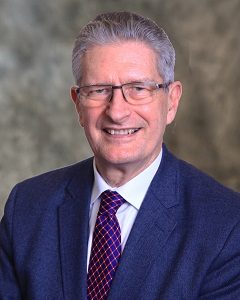
The fifth and final webinar of the Live From Washington series, organized in partnership with AmCham China in Beijing, focused on the future of US-China relations under the newly-inaugurated Biden Administration. Over 130 participants tuned in to this riveting discussion and actively engaged in the Q&A portion of the program, offering unique insight into the collective conscience of academic, business, and government leaders in both the US and China. Christian Murck, former President and Chairman of AmCham China moderated the discussion. Speakers included Susan Shirk, Research Professor and Chair of the 21st Century China Center at University of California-San Diego; Frank Lavin, former Ambassador to Singapore and Under Secretary of Commerce for International Trade; and David Finkelstein, Vice President at CNA and high-ranking retired US Army officer.
Perhaps the key takeaway of the program, speaker after speaker emphasized that the PRC leadership faced, with the arrival of the Biden presidency, a crucial opportunity to work toward stabilization of bilateral relations. Speakers’ confidence that the Chinese leadership would recognize that opportunity and act upon it in any number of ways, some suggested by the speakers themselves, was very cautious, and all recognized the real possibility that China’s leadership would either not see the opportunity or would choose not to pursue it. But the speakers expressed hope nonetheless that China would seize the opportunity to join with the United States in stemming the downward plunge in overall relations.
Dr. Susan Shirk focused on potential constraints which prevent the bilateral relationship from moving ahead. The first are the political realities in the United States which include rhetoric about the Biden Administration being ‘soft of China’ if they take a position other than a strident, confrontational stance towards China. The Democratic Congress and White House might be tempted to build bridges with the Republicans by attempting to demonstrate aggressive or confrontational stances on China issues and that the US is strong and not in decline. The second constraint is the stated intention by the Biden Administration to build closer ties with American allies in an effort to convince PRC leadership to change their behaviors which the US and its allies do not agree with. Dr. Shirk noted that the US and its allies do not necessarily share the same priorities and views towards China, as commercial opportunities with China may rank higher for European allies.
Frank Lavin focused on trade and economic perspectives looking ahead, opening by offering several elements of potential constraint on positive movement in bilateral relations. According to Mr. Lavin, there is “little political upside” in the trade policy in Washington and that societies face a continuing struggle between “economic nationalism” and “rationalism.” Mr. Lavin stated that Beijing does not see market rationalism as a goal in and of itself which is why he is not optimistic with regard to the potential for China to move in more compatible directions. Lavin notes that there remains at least a theoretical understanding that trade can yield win-win outcomes and that should the US actually work to join the CPTPP (eleven nation successor to the TPP negotiated under the Obama Administration), this might serve as a nudge to Beijing to begin changing its economic and commercial practices which are incompatible with the requirements of the CPTPP. Lavin concluded with the recommendation that the Biden Administration initiative some finite, focused “baby steps” by eliminating some elements of the Trump punitive onslaught against China. For example, the elimination of tariffs on Greentech and biomedical products might be lifted as a signal to China.
Dr. Finkelstein spoke in regards to the military and security dimensions of Sino-American relations. He predicted more continuity than change, though changes in rhetorical tone may be anticipated. The overall US perception, however, that China poses a long-term challenge that must be met and managed is not likely to change significantly. The modernization of the PLA Navy exemplifies the strategic dimension of current US concerns, while the growth of Chinese economic interests worldwide has increased China’s determination to provide for the protection of those interests. Having detailed some of the ways in which the US and China are engaged in constant, intense military competition today, Dr. Finkelstein turned to the problem of “managing risk.” Neither country, he argued, wants a regional war. Both sides recognize that operational risks are “exponentially” increasing. The speaker’s own interactions with PLA interlocutors over the past year have revealed heightened Chinese concerns over these looming dangers. The Biden Pentagon, he noted, will need to review the many existing venues at which the American military and the PLA can pursue risk-mitigation measures. Finkelstein’s closing observation echoed those of Shirk and Lavin: there now exists an opportunity for China to “do the right thing.” Hopefully, China will make a clear commitment to enhanced mitigation of risk, at a time when the Biden team is thinking hard itself about risk management.
Ambassador Julia Chang Bloch offered very brief closing remarks, noting that this webinar concluded the USCET’s “Live From Washington” series. In her remarks, reflecting her personal history of upbringing in China, emigration in difficult circumstances to the United States, and a long and productive journey in her adopted home country, she took note of the trauma that the United States had endured with the insurrectionist riot against the US Capitol on January 6. Catastrophe, she noted, had been narrowly averted. But what had Americans learned? In a period of “democratic recession” across the globe, a major reminder is that “Words matter. The actions and words of leaders have power.” She concluded that the kind of work being performed by USCET and AmCham in the now-concluded Live From Washington series is needed as never before, and that, as so many defenders of a stable and positive relationship between the United States and China have observed, that relationship is “too important to fail.”
Biographies

David Finkelstein
David M. Finkelstein is a Vice President at CNA, an independent research institute which operates the Center for Naval Analyses (a Federally Funded Research & Development Center) and the Institute for Public Research. At CNA, he also serves as the Director of the China & Indo-Pacific Security Affairs Division. He received a PhD in Chinese and Japanese history from Princeton University and studied Mandarin at Nankai University in Tianjin, China. He is a member of the National Committee for US-China Relations and the International Institute for Strategic Studies (IISS). A retired US Army officer, Finkelstein is a graduate of the United States Military Academy at West Point, the US Army Command & General Staff College, the US Army War College, the US Army Foreign Area Officer Course at the JFK Center for Military Assistance and Unconventional Warfare, and the US Army Airborne School. Commissioned in the Regular Army, he held various command and staff positions to include service with the 86th and 40th Signal Battalions of the 11th Signal Brigade, the US Army Communications Command, the 505th Signal Company, and with the United Nations Command Joint Security Force in Panmunjom, Korea — an infantry battalion in the Demilitarized Zone. He also held various China and Asia-related positions in the Pentagon, including director for Asian analyses on the Joint Staff (J-8). He also served on the faculty of the history department at West Point where he taught Chinese history, Japanese history, and the history of warfare in Asia. His awards and decorations include the Defense Superior Service Medal, the Legion of Merit, and parachutist wings.

Frank Lavin
Frank Lavin has spent most of his professional life helping companies succeed in China, through leadership roles in banking, marketing, and diplomacy. Following his work in the White House and National Security Coouncil, Frank served as Ambassador to Singapore and Undersecretary of Commerce for International Trade. In the latter role, he was lead trade negotiator for both China and India and was the senior policy official, responsible for commercial policy, export promotion and trade negotiations. In the private sector, Frank was an Asia practice leader at Edelman, and prior to that he worked in senior finance and management positions in Hong Kong and Singapore with Bank of America and Citibank. Frank also served as Chairman of the Steering Committee of the USA Pavilion at the Shanghai 2010 World Expo. Frank is the co-author of “Export Now” (Wiley). Frank earned a B.S. from the School of Foreign Service at and an M.S. in Chinese Language and History, both from Georgetown University; an M.A. in International Relations and International Economics from the School of Advanced International Studies at the Johns Hopkins University; and an M.B.A. in Finance at the Wharton School at the University of Pennsylvania.

Susan Shirk
Susan Shirk is research professor and chair of the 21st Century China Center. She is one of the most influential experts working on U.S.-China relations and Chinese politics. She is also director emeritus of the University of California’s Institute on Global Conflict and Cooperation (IGCC). Susan Shirk first visited China in 1971 and has been teaching, researching and engaging China diplomatically ever since. From 1997-2000, Dr. Shirk served as Deputy Assistant Secretary of State in the Bureau of East Asia and Pacific Affairs, with responsibility for China, Taiwan, Hong Kong and Mongolia. Shirk’s book “China: Fragile Superpower” helped frame the policy debate on China in the U.S. and other countries. Shirk co-chairs a task force of China experts that issued its second report “Course Correction: Toward an Effective and Sustainable China Policy,” in February 2019, and is the co-author of the 2020 report, “Meeting the China Challenge: A New American Strategy for Technology Competition.” She is also co-chair of the UC San Diego Forum on U.S.-China Relations, the first ongoing high-level forum focused entirely on the U.S.-China relationship. Shirk earned her Ph.D. in Political Science from the Massachusetts Institute of Technology.
Moderator

Christian Murck
Christian Murck is a member of the International Advisory Council, APCO Worldwide, having previously served as its chair for Asia. He currently serves on the boards of the Geiss Hsu Foundation, the Harvard-Yenching Institute and the United Board for Christian Higher Education in China. Murck lived in Taipei for five years and Beijing for seventeen. As a banker he was Senior Country Officer, China for the Chase Manhattan Bank. He was also a director of the Bank of Shanghai, nominated by the International Finance Corporation, and later of JP Morgan Chase (China) Co. Ltd. An active spokesperson for the American business community, he was President of the American Chamber of Commerce in China and previously chaired its board. He also chaired the board of AmCham Taipei. He received a Ph.D. in East Asian Studies at Princeton University.
